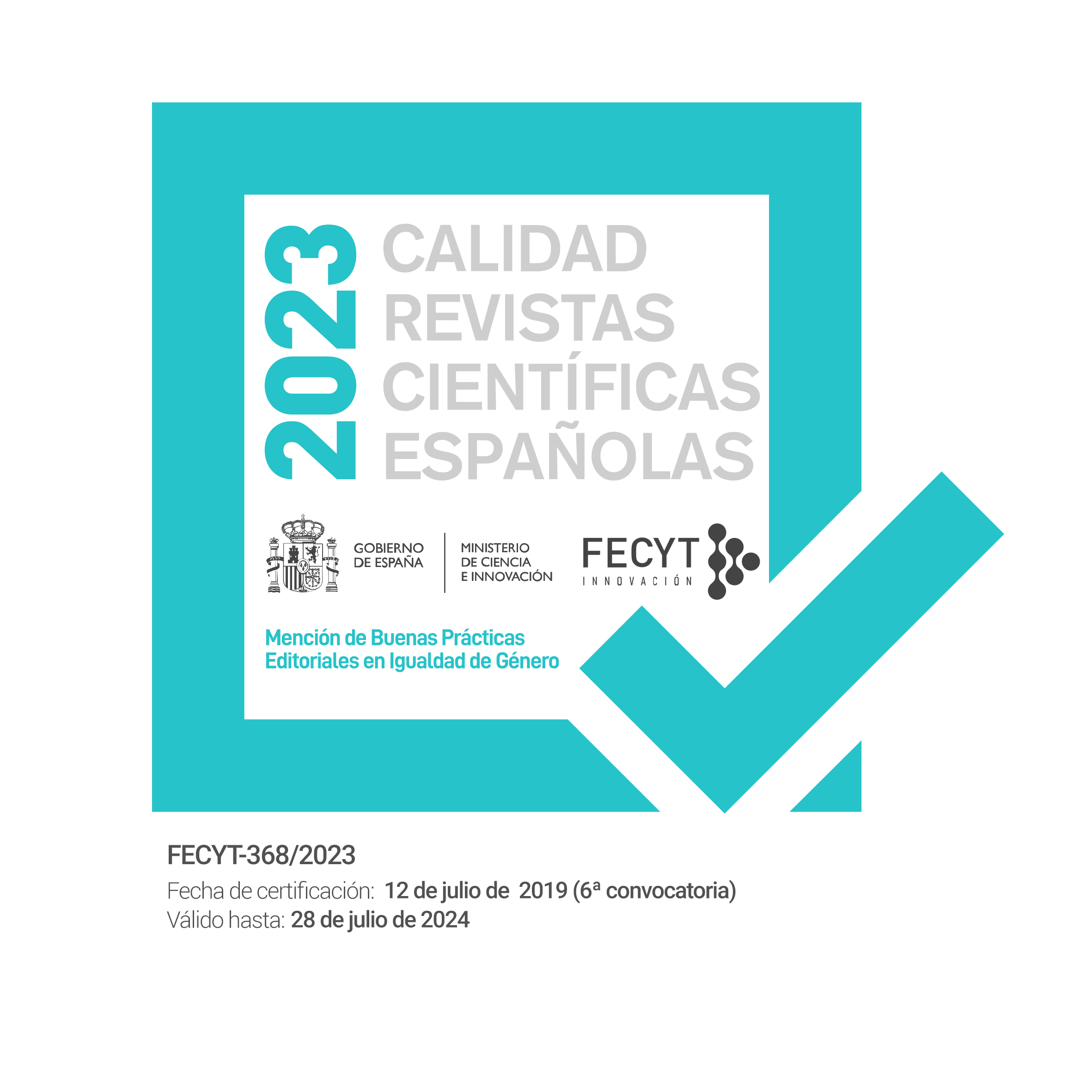Do you "(Mis)Understand" What I Mean? : Pragmatic Strategies to Avoid Cognitive Maladjustment
DOI:
https://doi.org/10.18172/jes.173Keywords:
Pragmatic markers, adaptive management, intonation, understanding, intercultural communication, maladjustmentAbstract
This article studies misunderstanding as a key factor in identifying the psychological basis of interactional cognitive maladjustment. The study focuses on the linguistic strategies to avoid pragmatic misunderstanding employed in conversations in Spanish and English and between native and non-native speakers of English. In particular, we analyze the use of pragmatic markers as adaptive management to avoid misunderstanding in conversation. Through the classification of pragmatic markers as rhetorical or overt, we study the distribution and use of each type of pragmatic marker and the implementation of pragmatic markers, with the lexical and intonational implications in cross-linguistic conversation for the adaptive Management of misunderstanding.Downloads
References
Aijmer, K. 2002. English discourse particles: Evidence from a corpus. Studies in Corpus Linguistics. Amsterdam and Philadelphia: John Benjamins.
Bazzanella, C. & R. Damiano. 1999. “The interactional handling of misunderstanding in everyday conversations.” Journal of Pragmatics 31: 817-36.
Brown, P. and S. Levinson. 1978. Politeness. Cambridge: Cambridge University Press.
Dascal, M. 1999. “Introduction: Some questions about misunderstanding.” Journal of Pragmatics 31: 753-62.
Garand, D. 2009. “Misunderstanding: A Typology of Performance.” Common Knowledge 15: 472-500.
Grice, H.P. 1975. “Logic and conversation.” Syntax and semantics: III. Speech acts. Eds. P. Cole and J.L. Morgan. New York: Academic Press. 41–58.
Hansen, M.B.M. 1998. The function of discourse particles. A study with special reference to spoken standard French. (Pragmatics and Beyond New Series 53). Amsterdam and Philadelphia: John Benjamins.
House, J. 2000. “Understanding misunderstanding: A pragmatic-discourse approach to analysing mismanaged rapport in talk across cultures.” Culturally speaking - Managing rapport through talk across cultures. Ed. H. Spencer-Oatey. London: Continuum. 146-64.
Moeschler, J. 2004. “Intercultural Pragmatics: A Cognitive Approach.” Intercultural Pragmatics 1: 49-70.
Panther, K.U. and L. Thornburg. 1998. “A cognitive approach to inferencing in conversation.” Journal of Pragmatics 30: 755-69.
Ponterotto, D. 2000. “The cohesive role of cognitive metaphor in discourse and conversation.” Metaphor and Metonymy at the Crossroads, a Cognitive Approach. Ed. A. Barcelona. Berlin: Mouton de Gruyter. 283-98.
Power, R.J.D. and M.F. Dal Martello. 1986. “Some criticisms of Sacks, Schegloff and Jefferson on turn taking.” Semiotica 58: 29–40.
Riley, P. 1989. “Well don't blame me! - On the interpretation of pragmatic errors.” Contrastive pragmatics. Ed. W. Oleksy. Amsterdam: John Benjamins. 231-49.
Romero Trillo, J. 2001. “A mathematical model for the analysis of variation in discourse.” Journal of Linguistics 37: 527-50.
Romero Trillo, J. 1994. “Ahm, Ehm,... You call it theme? A thematic approach to spoken English.” Journal of Pragmatics 22: 495-509.
Romero-Trillo, J. 2007. “Adaptive management in discourse: the case of involvement discourse markers in English and Spanish conversations.” Catalan Journal of Linguistics 6: 81-94.
Romero-Trillo, J. In press. “Pragmatic markers.” The Encyclopedia of Applied Linguistics. Oxford: Wiley-Blackwell.
Romero-Trillo, J and L. Maguire. In press. “Adaptive Context: the fourth element of meaning.” International Review of Pragmatics.
Romero-Trillo, J and J. Newell. Forthcoming. “Prosody and feedback in native and non-native speakers of English”. In Romero-Trillo, J. (ed) Pragmatics, Prosody and English Language Teaching. Dordrecht: Springer.
Sacks, H., Schegloff, E. and G. Jefferson. 1974. “A Simplest Systematics for the Organization of Turn-Taking for Conversation.” Language 50: 696-735.
Schegloff, E. 1987. “Some Sources of Misunderstanding in Talk-in-Interaction.” Linguistics 25: 201-18.
Schegloff, E., Jefferson, G. and H. Sacks. 1977. “The preference for self-correction in the organisation of repair in conversation.” Language 53: 361-82.
Sperber, D. and D. Wilson. 1995. (2nd ed.) Relevance: Communication and Cognition. Oxford: Blackwell.
Thomas, J. 1983. “Cross-cultural pragmatic failure.” Applied Linguistics 4: 91-112.
Weigand, E. 1999. “Misunderstanding: The standard case.” Journal of Pragmatics 31: 763-
Weizman, E. 1999. “Building true understanding via apparent miscommunication: A case study.” Journal of Pragmatics 31: 837-46.
Downloads
Published
How to Cite
Issue
Section
License
The authors retain copyright of articles and authorize Journal of English Studies the first publication. They are free to share, redistribute, and/or reprint the article without obtaining permission from the publisher as long as they give appropriate credit to the editor and the journal.
Self-archiving is allowed too. In fact, it is recommendable to deposit a PDF version of the paper in academic and/or institutional repositories.
It is recommended to include the DOI number.
This journal is licensed under a Creative Commons Attribution 4.0 International License










